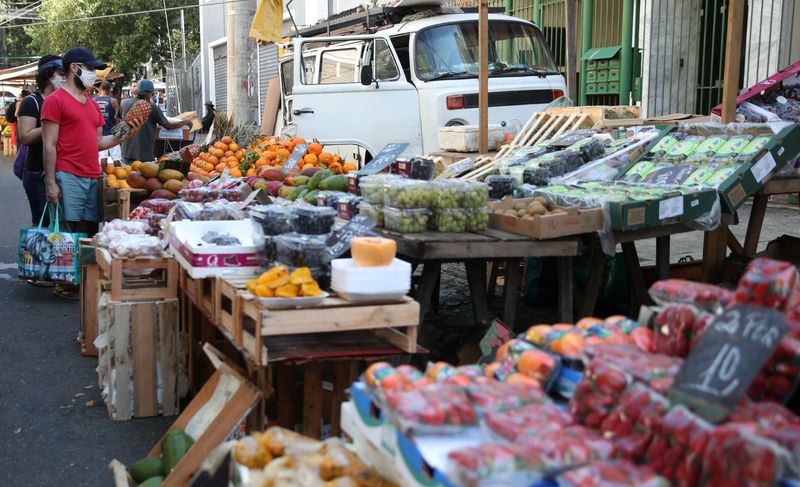By Steven Grattan
SAO PAULO (Reuters) -Brazil’s consumer prices as measured by the benchmark IPCA index rose 0.41% in November, below market forecasts of 0.53%, government statistics agency IBGE said on Friday.
Transportation and food and beverage costs were the main driving group of products behind the rise, contributing around 71% of the November IPCA.
The latest inflation figures come just days after Brazil’s central bank kept interest rates at 13.75% for the third consecutive policy decision, but highlighted fiscal uncertainties arising from a planned government spending boost.
The increase in transport was mainly linked to the rise in fuel prices (3.29%), which had fallen by 1.27% in October, IBGE said, noting the prices of ethanol, gasoline and diesel rose in November.
“This (increase) occurred due to an off-season period for sugarcane production as gasoline contains anhydrous alcohol in its composition,” said IBGE’s research manager, Pedro Kislanov.
Analysts predict disinflation will likely continue in 2023, particularly in the first half, when inflation is expected to hit around 4.5% in June, before edging higher due to less-favourable base effects, according to Andres Abadia, chief Latin America economist at Pantheon Macroeconomics.
“We look for inflation to end 2023 just above 5.0%. Risks to the outlook are balanced, at this point,” Abadia said, though noting disinflationary forces have the potential to be offset by the deterioration of the fiscal backdrop and global conditions.
Year on year, prices rose 5.9% through November, down from an increase of 6.47% in the previous month. Economists polled by Reuters expected a 6.01% rise.
The further fall “will help to ease the squeeze on household incomes,” said Capital Economics’ William Jackson.
“But with the prices of many core goods and services still rising rapidly and, more importantly, fiscal risks building, policymakers at the central bank will take their time before turning to rate cuts.”
The central bank said after its rate-setting meeting this week that it would closely monitor future developments in fiscal policy and its effects on asset prices and inflation expectations as President-elect Luiz Inacio Lula da Silva plans to boost spending next year.
(Reporting by Steven Grattan; Editing by Gabriel Araujo and Raissa Kasolowsky)
